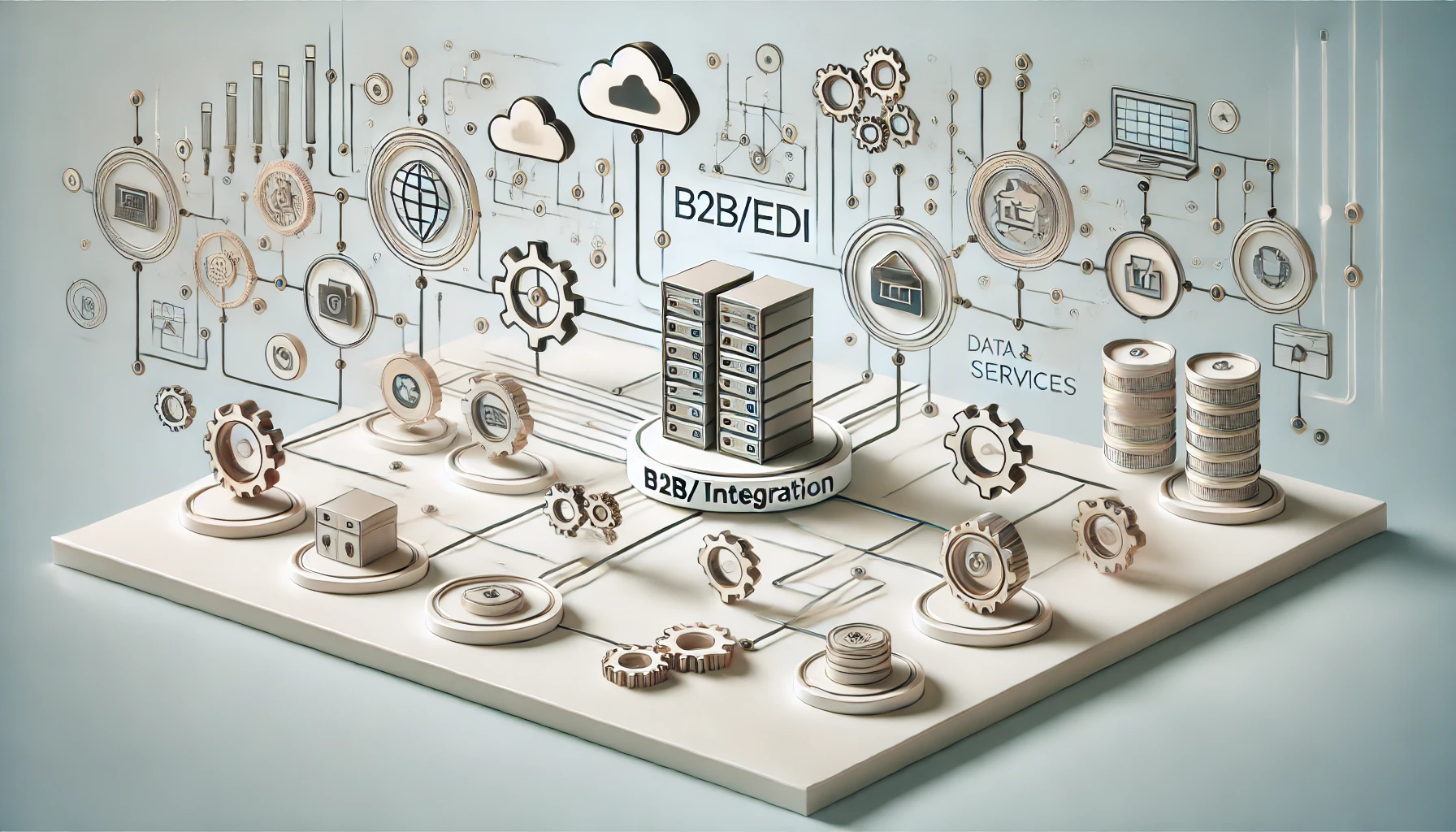Interested in learning more about B2B/EDI integration services? Imagine seamlessly connecting your business systems with your partners’, streamlining processes, and enhancing efficiency. From automating orders to optimizing inventory management, these services have vast implications for various industries. Stay tuned to discover how these examples of B2B/EDI integration services can revolutionize the way businesses operate and collaborate in today’s interconnected world.
Use Cases
When considering the use cases for B2B/EDI integration services, businesses often find themselves seeking ways to streamline their operations and enhance efficiency. Industry applications of B2B/EDI integration services span across various sectors such as retail, manufacturing, healthcare, logistics, and more. These services offer benefits for businesses by automating processes, reducing manual errors, improving data accuracy, and enhancing communication between trading partners.
In retail, B2B/EDI integration services facilitate seamless electronic transactions between suppliers and retailers, ensuring timely ordering, invoicing, and inventory management. For manufacturing companies, these services streamline supply chain processes, enabling just-in-time production and inventory control. Healthcare organizations leverage B2B/EDI integration to enhance patient data exchange, claims processing, and compliance with industry regulations. Logistics companies benefit from real-time tracking and efficient shipment handling through B2B/EDI integration services.
Scenarios
As businesses explore the diverse applications of B2B/EDI integration services across sectors like retail, manufacturing, healthcare, and logistics, they encounter various scenarios where the implementation of these services can revolutionize their operations. One common scenario involves the streamlining of supply chain processes through automated order processing and inventory management. While the benefits of increased efficiency and reduced errors are evident, companies may face implementation challenges related to legacy systems integration and data security risks when implementing these solutions.
In the healthcare sector, integrating B2B/EDI services can enhance communication between healthcare providers and suppliers, leading to improved inventory management and faster procurement processes. However, organizations in this industry must navigate complex regulatory requirements and ensure compliance with data privacy laws, presenting significant implementation challenges and potential risks related to data breaches.
In the manufacturing sector, leveraging B2B/EDI integration services can optimize production planning and enhance collaboration with suppliers. Yet, organizations may encounter challenges in aligning disparate systems and face risks associated with data inaccuracies impacting production schedules. Successful implementation of these services requires thorough planning and robust security measures to mitigate risks and maximize benefits.
Samples
Exploring practical examples of B2B/EDI integration services provides valuable insights into how businesses can enhance their operational efficiency and collaboration with partners. When it comes to integration benefits, one sample is improved data accuracy through automated data exchange between systems, reducing manual errors and enhancing decision-making processes. Challenges in B2B/EDI integration may include initial setup costs and the need for ongoing maintenance to ensure seamless connectivity.
Implementation strategies for successful B2B/EDI integration services often involve selecting a reliable EDI provider, defining clear data mapping processes, and establishing communication protocols with trading partners. Solutions to overcome integration challenges include investing in user training to maximize system utilization, regular monitoring of data flows to identify and address issues promptly, and implementing encryption methods to ensure data security during transmission.
Instances
Analyzing real-world instances of B2B/EDI integration services offers concrete examples of how businesses have leveraged technology to streamline their operations and enhance collaboration with partners. When it comes to implementation challenges, many companies face issues such as data mapping complexities, partner onboarding difficulties, and ensuring data security during the integration process. Best practices include thorough planning, clear communication with partners, and regular testing to ensure smooth implementation.
Integration benefits of B2B/EDI services include improved data accuracy, faster transaction processing times, reduced manual errors, and enhanced supply chain visibility. Industry trends suggest a growing adoption of cloud-based EDI solutions, increased focus on data analytics for business insights, and a shift towards more integrated and automated B2B processes.
Case Studies
Instances of successful B2B/EDI integration services can provide valuable insights into how organizations have overcome challenges and capitalized on opportunities for improved efficiency and collaboration. In a case study involving a global manufacturing company, implementation challenges initially included disparate systems and manual data entry processes. By partnering with an EDI service provider, the company streamlined order processing, reduced errors, and improved data accuracy. As a result, they experienced significant benefits, such as faster order fulfillment, enhanced inventory management, and strengthened relationships with trading partners. Another case study focused on a healthcare organization that faced data security concerns and inefficient communication with suppliers. Through B2B integration solutions, they achieved secure data transmission, real-time visibility into transactions, and automated workflows, leading to cost savings and improved compliance. These examples highlight how addressing implementation challenges through B2B/EDI integration can lead to tangible benefits, including operational efficiencies, cost reductions, and enhanced collaboration across supply chains.
Frequently Asked Questions
What Are the Common Challenges Faced During B2b/Edi Integration?
Navigating the landscape of B2B/EDI integration presents hurdles. Implementation challenges often arise, demanding meticulous planning and technical finesse. Communication issues can impede progress, requiring clear protocols and collaborative efforts to overcome.
How Can Companies Ensure Data Security in B2b/Edi Integration?
To ensure data security in B2B/EDI integration, companies must implement robust encryption protocols to safeguard sensitive information. Access controls should be strictly enforced to limit unauthorized access. Regular audits and updates are essential for maintaining a secure environment.
What Are the Key Factors to Consider When Choosing a B2b/Edi Integration Service Provider?
When choosing a b2b/edi integration service provider, consider integration flexibility and customization options to fit your business needs. Evaluate service provider reputation and customer reviews to ensure reliability and quality performance for seamless data exchange.
How Do Companies Handle System Upgrades and Changes in B2b/Edi Integration?
Navigating system upgrades and changes in b2b/edi integration is akin to fine-tuning a symphony. Implement robust change management strategies, align system updates with integration processes, and streamline company procedures for seamless transitions.
Is Training and Support Provided for Users During B2b/Edi Integration Implementation?
During B2B/EDI integration implementation, user training is crucial for smooth transitions. Implementation support ensures users grasp new processes efficiently. These services enhance user proficiency, minimize disruptions, and optimize system performance, fostering successful integration outcomes.



